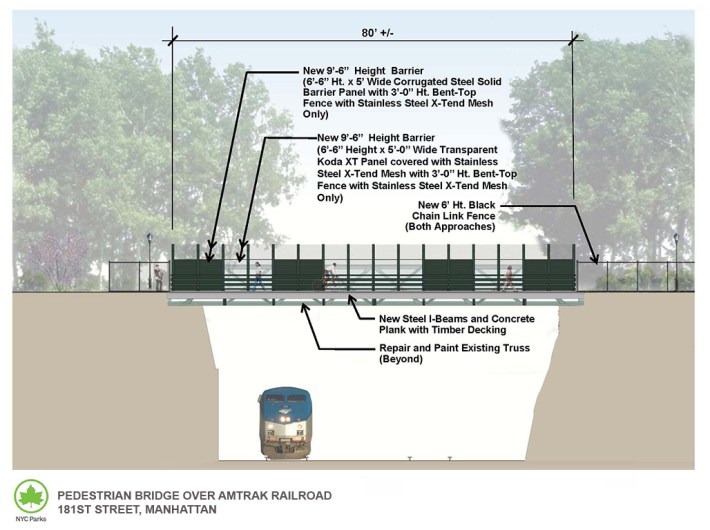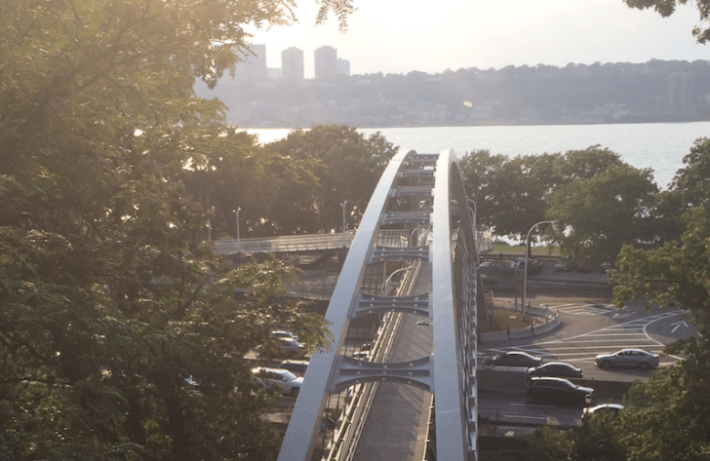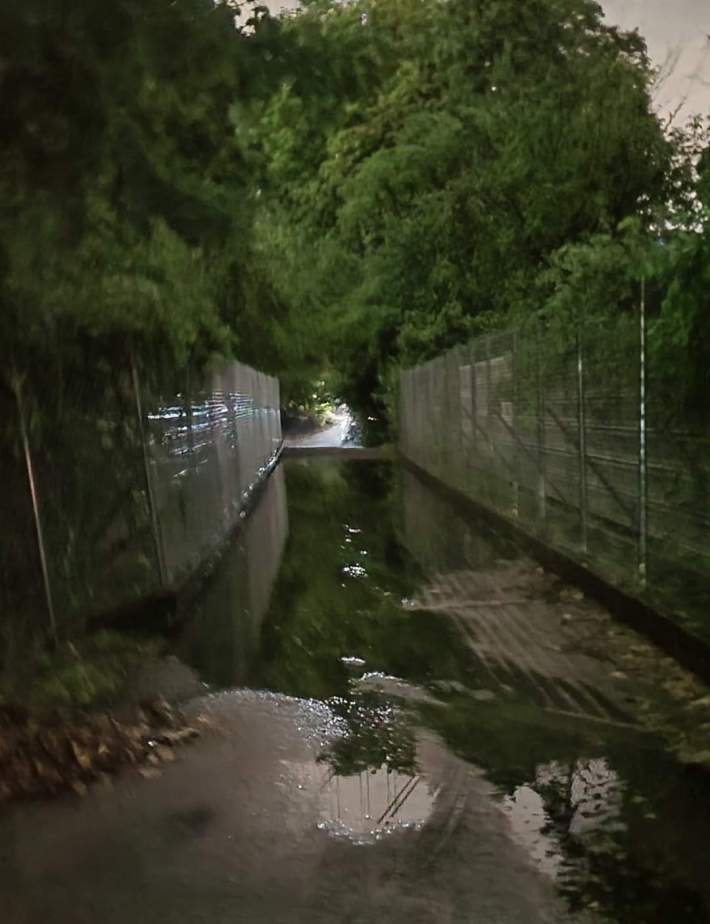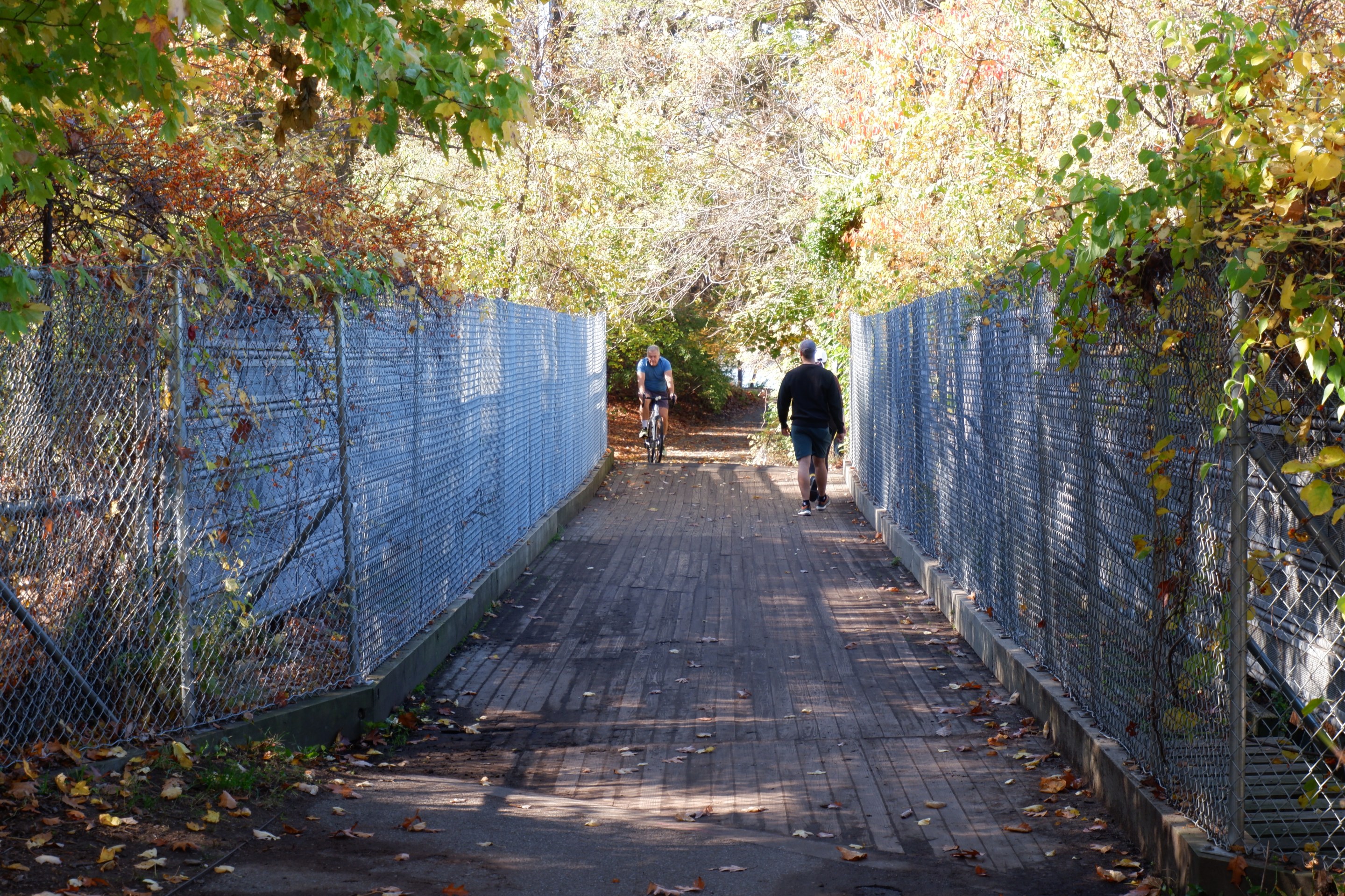The Brooklyn Bridge was built in 14 years, but New York City needs a year longer than that to start reconstructing a small span for pedestrians and cyclists uptown.
The city will finally begin renovating the 80-foot Fort Washington Park Bridge on the busy Hudson River Greenway in late 2023, officials confirmed to Streetsblog — the beginning of the end of a project that's been a decade and a half in the making.
The bridge provides passage over the Amtrak railroad tracks near W. 180th Street in Washington Heights, and its $6-million replacement has suffered repeated delays and bureaucratic shifts since originally announced in 2009.
"Fifteen years is a lifetime, man," said Inwood resident Allegra LeGrande, who routinely bikes the greenway to commute downtown. "I’ve had kids and they’re teenagers in that time."
The Parks Department did some emergency fixes in 2018, when its wooden path was riven with holes down to the tracks, but little work has happened since.
At the time, Parks closed the crucial link without providing a reopening date for a couple of months until Streetsblog exposed how the move cut off the crucial connector for thousands on the country's most popular bike lane and sent cyclists on a 23-block detour. But those repairs were only meant to shore up the structure in the short term, according to LeGrande.
“It was not built to be a permanent solution," she said. "The bridge is in really bad shape, horrible shape, it really needs to be taken care of."

Parks first began designing the replacement during the Bloomberg Administration and eventually finished drawing up the plans nearly a decade later in 2018 — two-and-a-half years behind schedule for a design phase that takes the agency 10-16 months on average — before moving on to procurement to find a contractor, Patch reported.
The scope includes new steel beams, a concrete plank, and timber decking, flanked by nine-foot barriers on the sides and a six-foot chain link fence on the approaches for $5.9 million.


The agency handed over the lead on the project to the Department of Transportation by January 2020, and construction is not set to start for another year, according to DOT spokeswoman Mona Bruno.
The rep said that DOT made no changes to Parks's drawings, which she labelled a "preliminary design concept," but did not explain why the project has been stuck for the past four years.
For comparison, the state's elaborate Denny Farrell Greenway Bridge 30 blocks south at W. 151st took only two years to build over the Amtrak rails and the Henry Hudson Parkway. That said, it cost $24 million.
The heavily trafficked Fort Washington Park span remains passable, but it's been narrower ever since Parks set up more fencing years ago and it routinely floods in the rain, said one Washington Heights resident.
"When a rainstorm comes through, it’s kind of unusable," said Ben, who asked to only be identified by his first name. "If it’s not done, it’ll just go back to the dangerous condition that it was in before."
Meanwhile, a 1.4-mile portion of the Hudson River Greenway just to the north shuttered for four months this week, and the city has refused to set up a safe alternative bike route and is instead diverting cyclists on a hilly bypass through crash-prone neighborhood streets.






